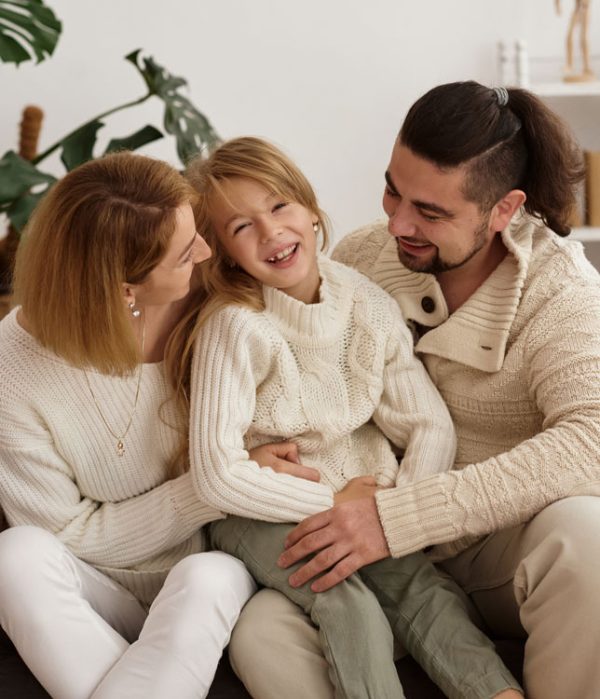Family Counseling in New York, NY & California
A healthy and cohesive family unit depends on the holistic well-being of each of its members. Conflict is viewed differently by each individual in a family and should be addressed in such a manner. Learn more below about empathy’s role in healing a family, no matter what struggle they are facing, and help yourself decide if family counseling in New York, NY and California is something worth exploring.

What is Family Counseling?
Family therapy is a delicate balance of understanding the function of the entire family unit, while also fully empathizing with everyone’s individual perspectives and emotional involvement. Our therapists aim to ensure each family member feels heard, understood, and valued as both themselves, and as existing within the family itself. Each member is provided with a safe place from which to address the issues that they believe are at the root of why you’re seeking in-person or online therapy, which eventually allows our counselors to fully understand your family’s patterns.
Based on what our therapists view and experience during your session, we are then able to decide what steps to take to address your issues. Oftentimes this involves in session and at home tasks, as implementing strategies and tools in the common ground setting of your home is vital for your healing journey. After these therapeutic strategies are ingrained in your every day, then long-term, positive changes can be discussed and focused on. The end goal is to encourage each member of your family to feel confident enough in addressing these issues, whatever they may be, on their own and in their own way. This will eventually add to the cohesiveness of the entire family unit. We fixate on what makes you strong together and utilize that to build a better foundation for behavioral patterns, communication styles, attachment, bonding, and tackling life’s challenges.
It’s vital to mention here that what defines a family is completely up to you. Blood relations do not necessarily determine a family unit, and our therapists acknowledge this and address your family, however it is comprised, like its namesake.
Our Therapeutic Approaches
Your Counseling Experience
Each therapeutic experience is different, and each session can unlock helpful and new paths to explore during the healing process. The below are just to give you a general idea of what to expect when you contact us, hopefully instilling a bit of confidence and ease any worry associated with seeking therapy.
- 60-minute sessions generally, once a week.
- Short-term work can last between 3-6 months or whenever you feel you’ve reached the version of your family you were all seeking
- Long-term work also lasts as long as you all need
How We Choose Your Therapist
- What you all need to reach mental well-being
- Your personalities and energies
- Your communication styles
- Our therapist’s specialties, training, interests, and own lived experiences
- Our therapist’s approach and communication style
In the Meantime
Extensive research has found that these simplistic and mindful lifestyle changes have a drastic effect on daily life. Give them a shot if
you need some immediate peace.
- Meditation
- Yoga
- Reiki
- Experiencing nature
- Conscious, deep breathing
- Maintain an active lifestyle
- Healthy diet


